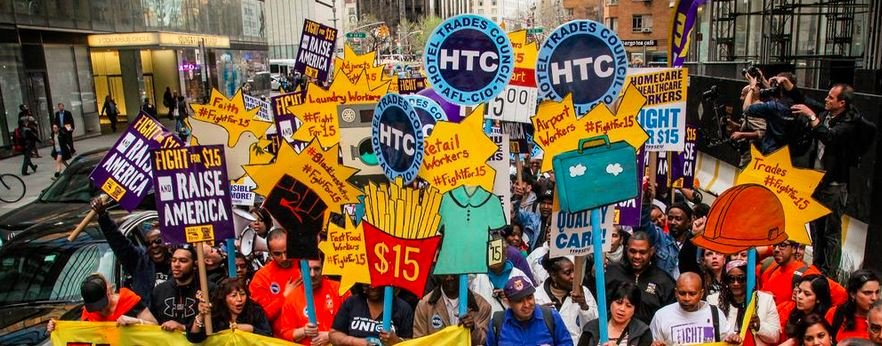Basic income is on the table in Canada. Is it the fight we want?
While the pandemic economy is far from behind us, the Canada Emergency Response Benefit (CERB)—Canada’s chief unemployment benefit—is soon coming to an end. Many on the left have since begun actively refusing a post-CERB world, calling instead for its extension, or, most recently, its conversion into a universal basic income (UBI).
This call has taken on new significance following the tabling of Motion 46: Guaranteed Livable Basic Income by Leah Gazan, New Democratic Party MP for Winnipeg Centre. Gazan has since garnered 15,000 signatures on a petition in favour of the motion. On Twitter she writes: “Let’s trend this to tell the federal government they must ensure human rights for all!â€
The left has been grappling for basic income for decades, though its popularity of late is largely growing—not just among progressives, but on all sides of the political spectrum. Arguments in its favour are often tailored to its audience: to the right, UBI can consolidate the inefficient unemployment and support systems in place, and increase participation in the market of goods; to the left, UBI could free us from (bad) wage labour, reduce poverty, provide dignity and autonomy, soften our displacement by automation, or even help bring about our communist dreamscape, but not at the cost of strong public services in the meantime.
The extent to which the policy has play with a critical mass of Canadians remains to be seen, but a diverse movement has nevertheless grown. Together, the UBI corps is a motley crew of leftists, non-profits, CEOs, Brian Mulroney, a grip of sitting Liberal and Conservative MPs and senators, and now sections of the NDP—perhaps indicating future directions for the party.
Another aspect of UBI’s appeal, which is often overlooked, is its ease. It’s easy to explain, and if you keep it generally abstract or work off a few common conceptions, it can be fairly simple to get people on board with it as well. Arguments often start by saying that automation—and the brutal displacement it causes—is unavoidable. And since most people are, or will be, at risk of this displacement, UBI offers a great safety net in an ever-changing society. The same can be said for recessions and the anxieties of being thrown out of work. What’s more, the proliferation of bad or unfulfilling jobs in offices, or via apps, leaves much to be desired. A UBI, the argument goes, could augment our precariously-earned income or provide an exit from the labour market altogether, allowing us to do with our day what we really want—like play more Animal Crossing or reupholster chairs. It’s also (theoretically) unbureaucratic, answering immediate needs with quickness.
Moreover, UBI could fundamentally reshape how we work—an enticing idea for Marxists, to be sure. It is unsurprising, then, that the idea has taken on new significance during the COVID-19 crisis where a sizeable chunk of the population remains out of work and big ideas are in vogue. What better time than now?
On an ideological level, the UBI question manages to be everything to everyone, in effect bucking class conflict and politics. In fact the idea is often positioned as post-political—“not left, not right, but forward.†The work of UBI advocacy has thus been less arduous than, say, a campaign for nationalizing an industry might be, which has allowed the movement to pick up speed as it takes on new sections of the political spectrum, lubricating the often difficult work of political organizing.
Winning feels good, even if it’s tenuous, a probably intoxicating feeling for UBI’s proponents on the left who have spent the last 40 or so years doing a lot of losing.
Comments
There are 0 comments on this post






